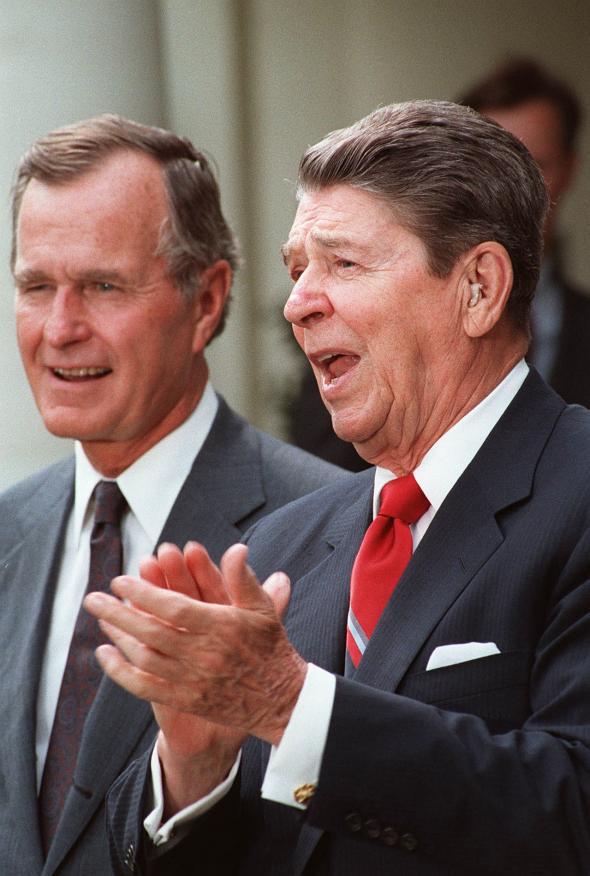A fascinating report by Joby Warrick of the Washington Post published Thursday shows a startling difference in the tone and rhetoric of the Republican party of the 1980s on environmental issues, including climate change, compared to the GOP candidates currently running for office. The Post obtained 11 confidential internal memos of the Reagan and elder Bush White Houses—obtained via the Freedom of Information Act—that showed consecutive Republican administrations far more concerned and engaged on the environmental issues than their current counterparts.
“The documents portray senior officials in the two Republican administrations pressing for an aggressive response to international environmental issues of the day — including, during Bush’s term, climate change,” Warrick writes. “The memos reflect the moderate stance on climate change adopted by Republican leaders both in the White House and in Congress throughout the 1980s and 1990s.”
It’s worth heading over to WaPo to read the piece in its entirety, but here are a few excerpts of the memos that show a remarkably different tone. Here’s an example from a State Dept. memo in Feb. 1989 in a newly inaugurated George H.W. Bush administration.
“A 1987 memo showed Reagan White House officials pushing back against members of Reagan’s own Cabinet in arguing for a strong treaty safeguarding the thin band of atmospheric ozone that protects the Earth from harmful radiation from space,” the Post reports. “The memo warned against efforts to weaken the treaty, saying such a move ‘would damage our international credibility, unleash major domestic criticism, and probably result in unilateral U.S.’ controls on ozone-depleting chemicals.”
In another memo sent to then-Secretary of State James A. Baker III in Feb. 1989, acting assistant secretary Richard J. Smith presented climate change as an opportunity for U.S. leadership.
*Correction, Dec. 3, 2015: This post originally misstated the Washington Post report was published on Wednesday; it was released on Thursday.
